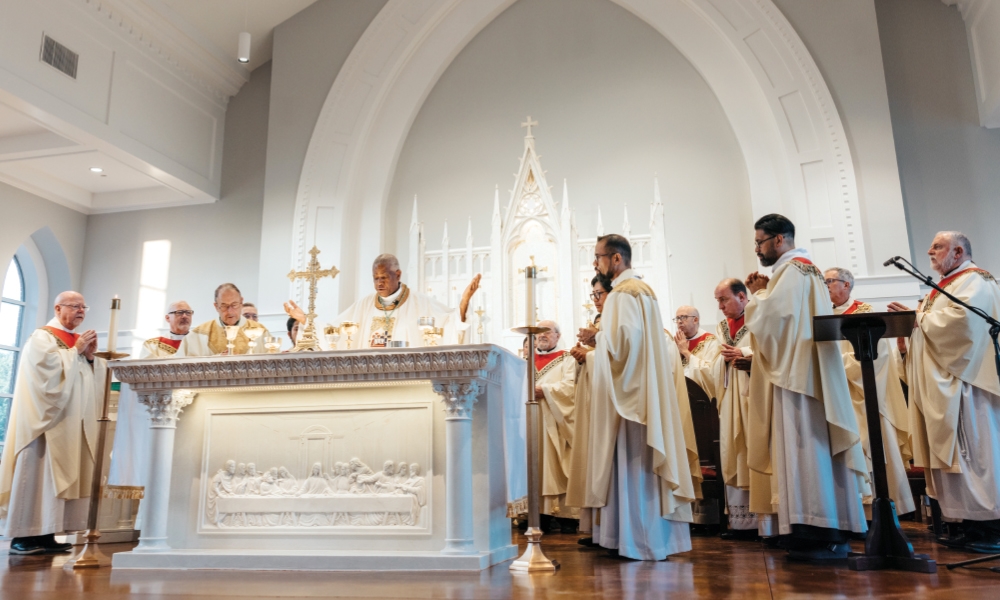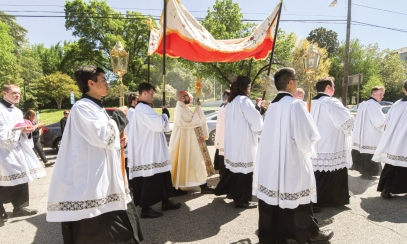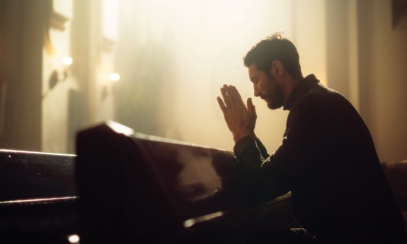
The Eucharist: A Moment of Truth
Over the past couple of months, we have talked about the transcendentals and the Eucharist. What we call the transcendentals are attributes of God that we see reflected throughout creation. When we encounter them, they give us access to God. The most frequently enumerated of these are truth, beauty and goodness. If we find these transcendentals throughout all of creation, it should be no surprise to us that we encounter them in a clear and preeminent way in the sacramental life of the Church.
We have already looked at beauty and goodness and their interconnection in the Eucharist. So, it is only fitting that we discuss truth and the Eucharist now.
Over the past couple of months, we have talked about the transcendentals and the Eucharist. What we call the transcendentals are attributes of God that we see reflected throughout creation. When we encounter them, they give us access to God. The most frequently enumerated of these are truth, beauty and goodness. If we find these transcendentals throughout all of creation, it should be no surprise to us that we encounter them in a clear and preeminent way in the sacramental life of the Church.
We have already looked at beauty and goodness and their interconnection in the Eucharist. So, it is only fitting that we discuss truth and the Eucharist now.
Personally, the truth of Christianity has always been something that has driven my own spirituality. I have often told people that I am not a Christian because I think I’m good at it; I’m a Christian because it’s true. Of all the worldviews available to us, and there are many, the Christian one makes the most sense of the time and place in which we find ourselves. It is the story of a fundamentally good creation made by a loving Creator.
This creation finds something special and unique in humanity; however, it is haunted by sin. But then, it is so loved by this same Creator that he wants to take his creation into a deeper relationship, one that was not possible before sin. And so the loving God takes on our humanity, dies for us through that humanity and transforms our lives on Earth — and transforms our deaths too.
The interplay of goodness and sinfulness help us to untangle the web of confusion we encounter when we examine the world and human interactions within it. It also corresponds to the deepest longing of our hearts as human beings: to be loved, to belong and to experience this in a lasting way.
What I have just described as the Christian worldview is also simply what we call the Gospel or the kerygma (Greek for proclamation). To reiterate the interconnection between the transcendentals, it is easy to see in this proclamation the goodness and beauty of the Christian message. And it is important to remember that we encounter this truth (and beauty and goodness) in the sacrament of the Eucharist and in eucharistic liturgy. We encounter, for instance, the truth proclaimed in the Scriptures during the Liturgy of the Word and the truth of the Profession of Faith that we make on Sundays and feast days.
But also, the very goodness of creation and of human effort are affirmed in the elements of bread and wine, the fruit of the earth/vine and work of human hands: what God has given and what we have done with it. Our sinfulness is also acknowledged in the penitential rite. Most importantly, the transformative nature of God’s love for us is encountered when the bread and wine become the body, blood, soul and divinity, the Real Presence, of Christ Jesus.
His transformative presence is then received by us. In that moment of intimacy, when we receive the Lord in all his beauty and goodness, we also find ourselves in a moment of truth. We often use that expression when we are at a crossroads in life, where we either have to make a choice or the consequences of our choices are revealed to us. Every time we receive the Eucharist, we have this moment available to us. This notion of a moment is an important aspect of presence; it has a physical and temporal connotation. Present means here and now. The “now” of the Eucharist is an intimate encounter with a God who wants to be involved in all aspects of our life, all of our nows.
In the intimate encounter with Christ in communion, we are invited to organize all our nows around the “now” of Christ’s presence. We are called to allow his truth to enlighten the rest of our lives in anticipation of the eternal moment — the now of salvation.
Michael Martocchio, Ph.D., is the secretary of evangelization and the director of the Office of Catechesis and Christian Initiation. Email him at mmartocchio@charlestondiocese.org.



